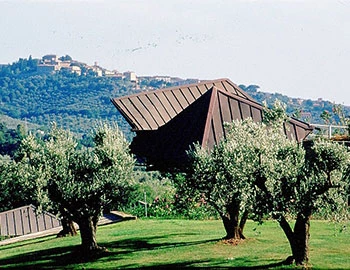
Amarone Marchesa Margherita 2020
DOCG, Paladin, 750 ml

Description
An Amarone with a great deal of elegance, discreet sweetness and a subtle bitter note – as noble as a Marchesa. A delicate rose scent, cinnamon, clove, dried figs and dates dominate its aroma palette. The slightly sandy tannins and juicy acidity give it a powerful, pleasantly clear structure on the palate. All told a wine with a lot of class with a great price/ pleasure ratio!
Attributes
| Origin: | Italy / Veneto / Amarone |
| Grape variety: | Corvina, Corvinone, Rondinella |
| Ripening potential: | 4 to 6 years |
| Drinking temperature: | 16 to 18 °C |
| Food Pairing: | Bistecca fiorentina, T-Bone steak, Saddle of lamb fillet with herb jus, Roast veal with morel sauce, Saltimbocca, Rabbit ragout with olives, Mushroom ragout |
| Vinification: | fully destemmed, long must fermentation |
| Harvest: | hand-picking, strict selection, drying of the grapes |
| Maturation: | in partly new and used barriques/ Pièces, in large wooden barrel/foudre, some months bottle storage before sale |
| Bottling: | filtration |
| Maturation duration: | 33 months |
| Volume: | 14.5 % |
| Note: | Contains sulphites |
Paladin
The vineyards of the Paladin winery are located in the border area between the Eastern Veneto and Friuli, where wine was already being grown in Roman times. At that time, the wines of this area were shipped in amphorae from the nearby sea ports to Rome, as reported by the historian Pliny.
The company was founded 50 years ago by Valentino Paladin, and today is jointly managed by his three children: Lucia, Carlo and Roberto.
The calcareous clay soils were formed about 20,000 years ago, after the last ice age. At a depth of 50 to 100 centimetres, one runs into limestone, the so-called Caranto, which gives the wines their body, richness and flavour intensity. The region has a rather mild climate. To the north, the Dolomites and the Alps provide protection from the cold; to the south-east, the Adriatic has a moderating influence.
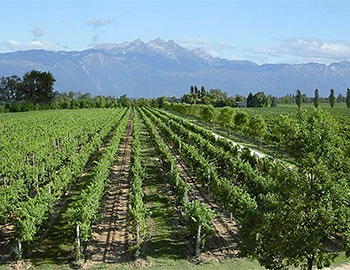
Corvina
Everything stays in the family
This triumvirate is inseparable: the red Corvina grapes and their genetic offspring, Rondinella and Molinara. They come from Valpolicella in the northern-Italian Veneto. There they are processed together into the flagship wines of the region: the opulent Amarone and the sweet Recioto. The principle is always the same: the winemaker dries the grapes after harvest for a few months. Thus the water evaporates in the berries, and the sugar concentrates, similar to raisins. The Corvina always plays the lead role in this. It shines with a deep red colour, juicy, sour cherry fruit and mild tannins. It contributes the same qualities to the Bardolino, a dry red from near Lake Garda. A bold tip: try Amarone with grilled Wagyu beef.
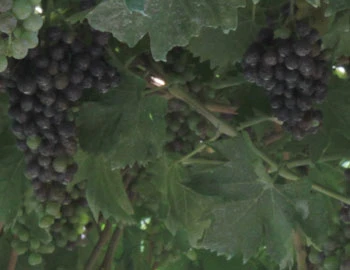
Rondinella
Robust grapes
The cherry-fruity red Rondinella is number two in the league of Amarone grapes. The Corvina traditionally takes the lead role; Molinara plays the third violin. Winemakers appreciate Rondinella’s extreme resistance to fungal diseases. This is important because the grapes for Amarone are dried for several months prior to pressing. While this takes place in a well ventilated area, it is nonetheless advantageous if the berries are not susceptible to the consequences of potential moisture. Rondinella is also placed in the sweet wine Recioto, the second specialty of the Valpolicella region, as well as in Bardolino, the house wine of the nearby Lake Garda.
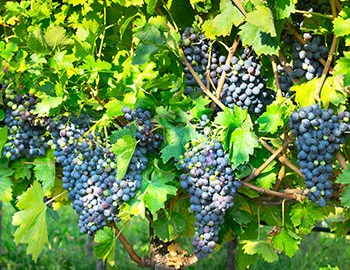
Corvinone
Born for the supporting role
The dark-coloured, acid-accented Corvinone from Veneto is almost never pressed by itself. Instead, it is a part of the grape variety mixture for Amarone. The grapes for this opulent wine from the Valpolicella region are dried and are ideal for the Corvinone. Its grapes are large, so they do not shrivel too much. The grapes grow loosely, and as a result rot more slowly than berries that rest too closely on top of each other. Corvinone is also found in Bardolino, a dry red from Lake Garda.
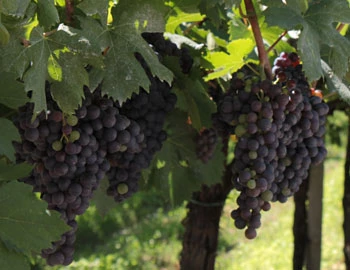
Veneto
Veneto: land of the Amarone and Prosecco
Veneto stretches from the Alpine foothills, through the flat Po Valley, to the Gulf of Venice on the Adriatic coast. Two types of wine in particular have been able to celebrate spectacular successes here in recent years: Amarone growths impress with their opulent body and force, while the cheerfully bubbling Proseccos please with their fruity, grape freshness. But the region also produces drinkable everyday wines, including the white Soave and the red Bardolino.
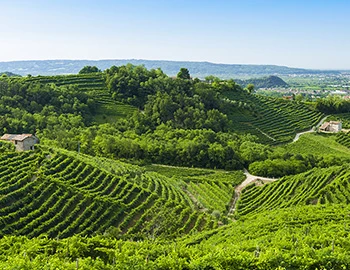
Italy
Italy – Where wine is a way of life
The Italian wine regions are extremely diverse, and this is made clear in their wines. Established varieties such as Merlot, Syrah, and Sauvignon can be found on just 15 percent of the total vine growing area. The remaining 85 percent is reserved for autochthonous, indigenous varieties. More than 2,000 different grape varieties are grown under diverse conditions and pressed with various techniques into wines that reach the top tier of the international wine market.
